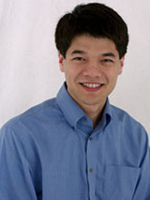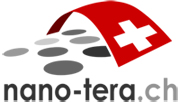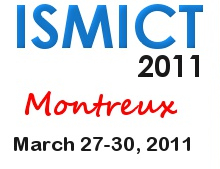Go to
Kevin Fu
 Assistant Professor
Assistant Professor
Department of Computer Science
University of Massachusetts Amherst, MA, USA
Trustworthy Medical Device Software
Today it would be difficult to find a medical device that does not critically rely on computer software in its function, manufacture, or use in clinical decision making. Despite the lessons learned by the radiation accidents of the Therac-25 twenty years ago, medical devices that rely on software (e.g., drug infusion pumps, linear accelerators for radiation) continue to injure or kill patients in preventable ways. Why is it so hard to create trustworthy software for medical devices? Devices are not isolated devices. They are systems of systems. And software plays a significant role for control of these critical systems that can significantly affect patient safety, either positively or negatively, depending on its trustworthiness. Failure to meaningfully specify requirements, complacency, and lack of care for human factors further erode trustworthiness. The lack of trustworthy medical device software leads to shortfalls in properties such as safety, effectiveness, dependabili! ty, reliability, security, and privacy. Good systems engineering and the adoption of modern software engineering techniques can address many of the risks of medical device software---leading to devices that help patients lead more normal, healthy lives.
About the speaker:
Kevin Fu is an assistant professor in the Department of Computer Science at the University of Massachusetts Amherst. His research focuses on trustworthy computing for energy-constrained, RFID-scale devices. His contributions include the security and threat model analysis of several systems ranging from contactless "no swipe" credit cards and wireless medical devices to access-controlled Web sites and automated software updates. Kevin's research has led to improvements in security and privacy of pervasive devices, promoting the vision of safer and more effective technology for consumers. Kevin received his Ph.D. in Electrical Engineering and Computer Science at the Massachusetts Institute of Technology. He has served on numerous program committees of leading conferences in computer security, and has given dozens of invited talks world-wide to industry, government, and academia on the topic of security and privacy. His research appears in computer science conferences, medical journals, and has been featured in media such as The New York Times, The Wall Street Journal, and NPR. Affiliations include the RFID Consortium on Security and Privacy (RFID-CUSP.org), the HHS SHARP Security project (sharps.org), and the Medical Device Security Center (secure-medicine.org). Kevin is an Alfred P. Sloan Research Fellow, ACM Senior Member, NSF CAREER Award recipient, and MIT Technology Review TR35 Innovator of the Year. He also holds a certificate of achievement in artisanal bread making from the French Culinary Institute.
Secondary navigation
- EPFL Workshop on Logic Synthesis and Emerging Technologies
- Luca Amaru
- Luca Benini
- Giovanni De Micheli
- Srini Devadas
- Antun Domic
- Rolf Drechsler
- Pierre-Emmanuel Gaillardon
- Jie-Hong Roland Jiang
- Akash Kumar
- Shahar Kvatinsky
- Yusuf Leblebici
- Shin-ichi Minato
- Alan Mishchenko
- Vijaykrishnan Narayanan
- Ian O'Connor
- Andre Inacio Reis
- Martin Roetteler
- Julien Ryckaert
- Mathias Soeken
- Christof Teuscher
- Zhiru Zhang
- Symposium on Emerging Trends in Computing
- Layout synthesis: A golden DA topic
- EPFL Workshop on Logic Synthesis & Verification
- Luca Amaru
- Luca Benini
- Robert Brayton
- Maciej Ciesielski
- Valentina Ciriani
- Jovanka Ciric-Vujkovic
- Jason Cong
- Jordi Cortadella
- Giovanni De Micheli
- Antun Domic
- Rolf Drechsler
- Henri Fraisse
- Paolo Ienne
- Viktor Kuncak
- Enrico Macii
- Igor Markov
- Steven M. Nowick
- Tsutomu Sasao
- Alena Simalatsar
- Leon Stok
- Dirk Stroobandt
- Tiziano Villa
- Symposium on Emerging Trends in Electronics
- Raul Camposano
- Anantha Chandrakasan
- Jo De Boeck
- Gerhard Fettweis
- Steve Furber
- Philippe Magarshack
- Takayasu Sakurai
- Alberto Sangiovanni-Vincentelli
- Ken Shepard
- VENUE
- Panel on Circuits in Emerging Nanotechnologies
- Panel on Emerging Methods of Computing
- Panel on The Role of Universities in the Emerging ICT World
- Panel on Design Challenges Ahead
- Panel on Alternative Use of Silicon
- Nano-Bio Technologies for Lab-on-Chip
- Functionality-Enhanced Devices Workshop
- More Moore: Designing Ultra-Complex System-on-Chips
- Design Technologies for a New Era
- Nanotechnology for Health
- Secure Systems Design
- Surface Treatments and Biochip Sensors
- Security/Privacy of IMDs
- Nanosystem Design and Variability
- Past Events Archive
Downloads
Presentation Slides:
SPIMD flyer including workshop schedule (250 KB pdf)
EPFL campus map (2.3 MB pdf)
Registration
Registration is free of charge. Please send an e-mail with subject line "SPIMD workshop registration" to anil.leblebici@epfl.ch to register. Make sure to state your full name and affiliation.


